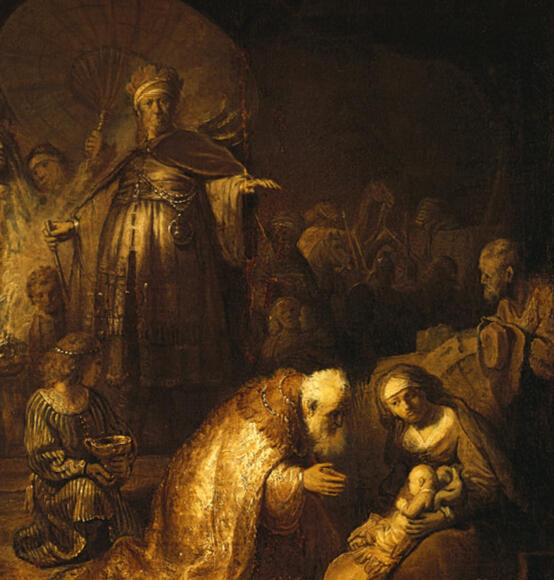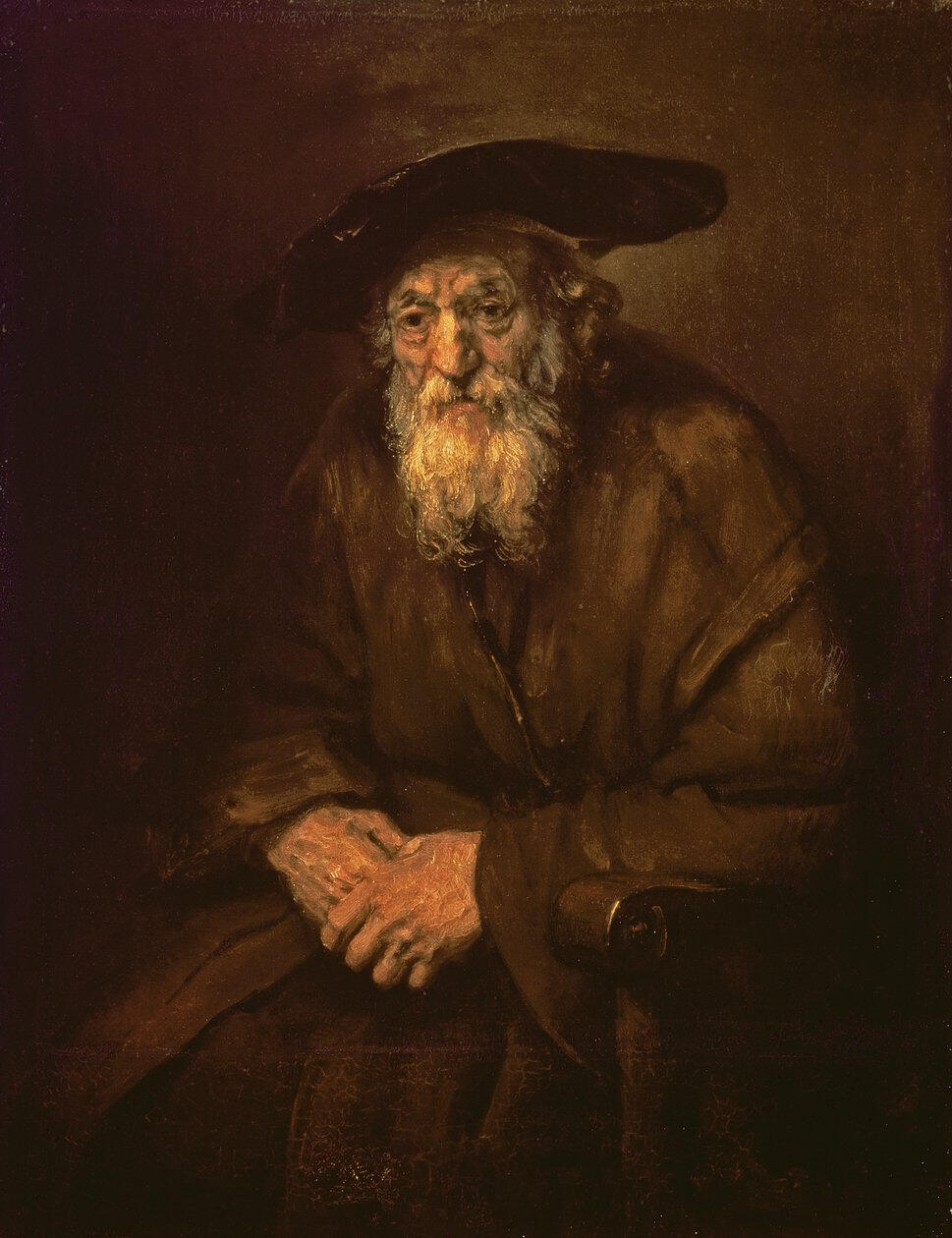Christian
& Jew
God,
Country,
and
Civil
Discourse
Blog
John and I are embarking on an experiment: whether civil discourse is still alive in
America. We think it is, and to test our hypothesis we will focus on God and Country.
Since John is a Christian and I am Jewish, differences of thought and feelings are
guaranteed, but hopefully, our contrary opinions will model a road to growth and insight.
We invite you to participate, and whether you agree with us or not, we expect to learn
much from what you have to say.
Alan's Blog
If This Is Christ

June 4, 2025
God's Word has a beauty and power that calls us always to reflection. We feel the outer edge of the eternal and both fearfully and irresistibly approach. And yet, in our hearts and souls we sense the impossibility of completely knowing the depth of Scripture.
John's Blog
Title

February 2, 2025
Lacus dictum sit egestas etiam est. Vivamus etiam donec eu eget ultricies tempus velit natoque. Eu dis felis diam rutrum etiam fermentum primis convallis. Sodales parturient. vis hendrerit.
podcast
Coming Soon
Your hosts
Alan Busch

Porta sapien pharetra suspendisse urna consequat. Integer pretium vis quam tellus convallis tortor lobortis congue. Lorem ipsum dolor sit amet nullam etiam, vis mollis venenatis augue.
John Johnson

Porta sapien pharetra suspendisse urna consequat. Integer pretium vis quam tellus convallis tortor lobortis congue. Lorem ipsum dolor sit amet nullam etiam, vis mollis venenatis augue.
Newsletter
Coming Soon
Contact Us
Alan's Blog
If This Is Christ
June 4, 2025
God's Word has a beauty and power that calls us always to reflection. We feel the outer edge of the eternal and both fearfully and irresistibly approach. And yet, in our hearts and souls we sense the impossibility of completely knowing the depth of Scripture. It comes then as a shock to me that tradition has so thoroughly fenced in this boundless ocean of God's Word, or that pastors have buttoned it up with such certainty, as if they could also reel in the night sky.So, I have asked myself this question: What would happen if we stepped away from the expected sermon and see for ourselves what it means to say, "Christ is God"; if we took that mighty statement and, without preconceptions, followed its consequences? I believe we will find, to our surprise, a freedom unknown to us before, one that our faith alone can bear.Yet writing without your collaboration, would be ridiculous, as if I were a new authority. I need you to criticize, to discuss, and to clarify my ideas, and perhaps yours as well. Let us see how we might finish the statement, "If this is Christ . . ."I think we can all agree that if Christ is God, he is God of the Christian and Hebrew Scriptures. That only makes sense. But we must apply that reasoning to Scripture and see where it takes us. I am going to choose Leviticus 16.29-31, 34. Here are the verses:29 And it shall be a statute forever unto you: in the seventh month, on the tenth day of the month, ye shall afflict your souls, and shall do no manner of work, the home-born, or the stranger that sojourns among you.30 For on this day shall atonement be made for you, to cleanse you; from all your sins shall ye be clean before the LORD.31 It is a sabbath of solemn rest unto you, and ye shall afflict your souls; it is a statute forever.34 And this shall be an everlasting statute unto you, to make atonement for the children of Israel because of all their sins once in the year. And he did as the Lord commanded Moses.These verses ordain Yom Kippur as the means by which God cleanses and forgives Jewish people of their sins. However, if Christ is God, it is Christ who is bestowing Yom Kippur on the Jewish people. And even more curious, He is doing so 'forever.' In Hebrew Scripture, repetition is meaningful. It suggests that what is being said has special importance. "Forever," or "everlasting," is repeated three times.So now we come to our first question: If God/Christ created Yom Kippur forever for the Jewish people, is it not a means of salvation for, and only for, the children of Israel? Also, if that is true, the Jewish faith in God, sustained over two millennia of atrocities, means that faith in God is faith in Christ, whether Jews know it or not.You are probably thinking, "Yeah, but something is wrong. How many times do we read in the Christian Scriptures that only by professing Christ as one's savior is one saved?" You might then add, "And what about the Gospel of John? 'No one can come to me unless the Father who sent me draws him,' and 'No one comes to the Father except through me.'" (Jn. 6.44, 14.6). I am not disputing the Gospel of John. However, as to proclaiming Christ as savior, Jews have proclaimed God/Christ for over three millennia and done so over unimaginable hardship. And as for God drawing one to Christ, God had already chosen the Jewish people as His own, and therefore as Christ's, since Christ is God. Whether one agrees or disagrees with my arguments, or is unsure, these ideas deserve discussion; for the least we can say is that God's Word is far more profound and extensive, far more surprising, than traditional instruction has led us to believe. As Moses says: "The secret things belong unto the Lord our God; but the things that are revealed belong unto us and to our children for ever, that we may do all the words of this law" (Deut. 29.28).How many mysteries has the Lord kept from us, those that are unrevealed? What the Lord has revealed is everlastingly ours and our children's. The great challenge for us is to see how God's revealed Word is touched by the unrevealed, and how there is mystery and holiness in everything that issues from the mind of God. That interplay cannot, I believe, be a matter of dogma and tradition, and certainly not of preconceptions. For hasn't God, in His grace, given us a mind to ponder and reflect on the most intriguing aspects of His Word, and so, the entire scope of both Hebrew and Christian Scriptures?With all this in mind, I would like to pose some questions: Do we dismiss Christ's work in the Hebrew Covenant? Not at all. If so, we no longer claim Christ as God. Do we say that Yom Kippur only points to Christ and is not forever a means of salvation and forgiveness of sins for Jews? If we do, we risk saying that God/Christ's Word, in ordaining Yom Kippur "forever," cannot be trusted; and therefore promises in the Second Covenant become suspect.Or do we consider that we have assumed too much? Has tradition dictated our understanding of both Covenants? Do we perceive out of reflex rather than thought? And have Pastors, assuming their good intentions, truly given us God's full Counsel? Each person must answer these questions for him- or herself. But for me, it seems the Hebrew Bible, two thirds or so of the entire Word of God, is often used only to point to Christianity, and not seen as sanctioned and sanctified as an everlasting Covenant by God/Christ Himself. I believe the Hebrew Covenant is, in its own right, separate from and united to the Second Covenant. Both Testaments represent God's entire plan of salvation for humanity.To reflect seriously on the ideas in this blog requires stepping away from preconceptions. Believe me, I know how difficult that can be. I am Jewish but cannot dismiss, out of hand, the Christian belief that God became Man. In future posts I must come to terms with that Christian truth. For now, I am suggesting we follow the consequences of our sacred beliefs and do so without fear that the results will negatively affect our faith. To 'wrestle' with questions, as the word 'Israel' denotes, brings us nearer to God. It is honesty. We see this wrestling in David's Psalms and in the man's beautiful admission to Christ: "I believe; help my unbelief!" (Mk. 9.24). We see the need to question when we read Job: "Though He slay me, yet will I trust in Him; but I will argue my ways before Him. This also shall be my salvation, that a hypocrite cannot come before Him" (Job 13.15-16). Our faith, like theirs, will remain intact.I am looking forward to your responses and John's reaction, and I am sure the civil discourse that follows will be enlightening. If you are like me, nothing is more fulfilling, spiritually and intellectually, than the study of God's Word.
Works Cited
For quotations from the Hebrew Scriptures, I used The Holy Scriptures according to the
Masoretic Text, published by The Jewish Publication Society of America, 1955.For quotations from the Christian Scriptures, I used The Holy Bible, English Standard
Version, published by Crossway Bibles, 2002.

John's Blog
Description, quote, or blurb here.
Blog Entry Title

February 2, 2025
Lacus dictum sit egestas etiam est. Vivamus etiam donec eu eget ultricies tempus velit natoque. Eu dis felis diam rutrum etiam fermentum primis convallis. Sodales parturient. vis hendrerit.Lacus dictum sit egestas etiam est. Vivamus etiam donec eu eget ultricies tempus velit natoque. Eu dis felis diam rutrum etiam fermentum primis convallis. Sodales parturient. vis hendrerit.Lacus dictum sit egestas etiam est. Vivamus etiam donec eu eget ultricies tempus velit natoque. Eu dis felis diam rutrum etiam fermentum primis convallis. Sodales parturient. vis hendrerit.

podcast
Description, quote, or blurb here.
Episode Title/Number

February 4, 2025
Description: Lacus dictum sit egestas etiam est. Vivamus etiam donec eu eget ultricies tempus velit natoque. Eu dis felis diam rutrum etiam fermentum primis convallis. Sodales parturient. vis hendrerit.Lacus dictum sit egestas etiam est. Vivamus etiam donec eu eget ultricies tempus velit natoque. Eu dis felis diam rutrum etiam fermentum primis convallis. Sodales parturient. vis hendrerit.Lacus dictum sit egestas etiam est. Vivamus etiam donec eu eget ultricies tempus velit natoque. Eu dis felis diam rutrum etiam fermentum primis convallis. Sodales parturient. vis hendrerit.
Episode Title/Number

February 2, 2025
Description: Lacus dictum sit egestas etiam est. Vivamus etiam donec eu eget ultricies tempus velit natoque. Eu dis felis diam rutrum etiam fermentum primis convallis. Sodales parturient. vis hendrerit.Lacus dictum sit egestas etiam est. Vivamus etiam donec eu eget ultricies tempus velit natoque. Eu dis felis diam rutrum etiam fermentum primis convallis. Sodales parturient. vis hendrerit.Lacus dictum sit egestas etiam est. Vivamus etiam donec eu eget ultricies tempus velit natoque. Eu dis felis diam rutrum etiam fermentum primis convallis. Sodales parturient. vis hendrerit.